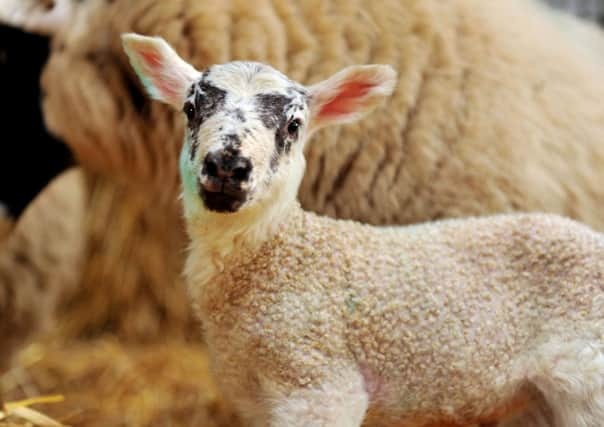Landlines: Good lambing means low prices


Crops such as oilseed rape, winter barley and wheat are drilled, weather permitting, almost a year ahead of being harvested.
Conception to sale for beef cattle is two years and more, for lambs 10 to 18 months. Deciding to drill or not drill crops is marginally easier than long term investment in livestock for breeding, but even in these much more flexible times for crop rotations most arable growers have an annual outline plan they try to stick to.
Advertisement
Hide AdAdvertisement
Hide AdThe obvious corollary is that decisions have to be made for expected returns at least a year and more ahead that might have little relation to prices at the time crops are drilled or animals mated.
Farmers more than most have always been aware of the thinking behind that old Chinese saying “May you live in interesting times.”
That has been particularly true of the past few weeks when even farmers with long memories have noted that the countryside has seldom looked better. Grain and oilseed crops look good and promise heavy yields, silage and hay crops have been excellent quality and heavy yielding, sheep and cattle mainly in top condition on good grazing.
The sun has often shone and most rain has been beneficial. What could there possibly be to complain about?
Advertisement
Hide AdAdvertisement
Hide AdThe answer is prices. It’s another truism of farming that too much of a product will mean lower prices. A good lambing and excellent grazing have brought large numbers of lambs to market and the price has plummeted.
We’ve also been reminded that lamb is the least popular of the main meats with shoppers. Barbecue weather might increase chicken, sausage and burger sales, but not lamb. The Muslim festival of Ramadan that involves daylight fasting also reduces demand for sheepmeat.
Beef prices are also down, exacerbated by more complaints from producers that the big supermarkets are bringing in cheaper imported beef.
It might be pointed out that when great efforts are being made to increase exports of Scotch beef there is no point complaining about imports, but I won’t risk that.
Advertisement
Hide AdAdvertisement
Hide AdWhat I will say is that holding an all-industry conference to implore processors and retailers to be more sympathetic to home-produced beef is a waste of time.
Supermarkets under the cosh from shareholders and competitors don’t have many tears to shed for anyone else, and they won’t.
Potatoes aren’t exempt. One report last week indicated that about 50,000 tonnes of last year’s potato crop have been dumped because demand is down more than 10%.
That seems on the verge of criminal waste, until we remember the years of the Potato Marketing Board when growers were paid to dye tens of thousands of tonnes of unwanted potatoes blue and dump them in holes and quarries.